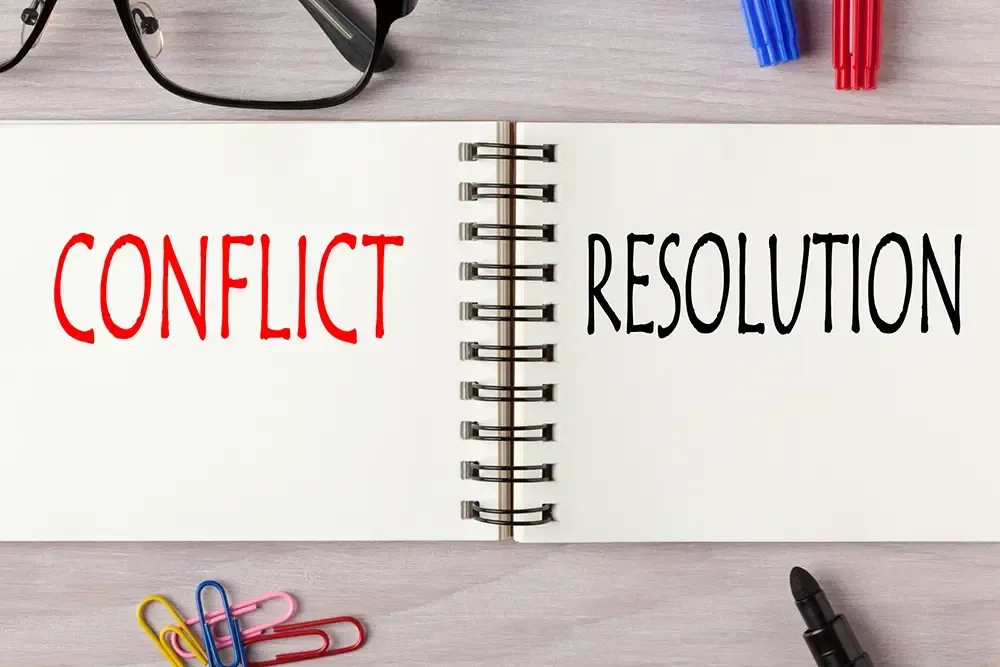What is Alternative Dispute Resolution?

Alternative Dispute Resolution (ADR) encompasses methods used to resolve conflicts without going through the New Jersey courts. It includes methods like mediation, arbitration, and negotiation.
Mediation in New Jersey
Mediation is one specific form of ADR, but it has its distinct characteristics:
- Role of the Mediator: In mediation, a neutral third party (the mediator) facilitates communication between the disputing parties to help them reach a voluntary settlement. The mediator does not make decisions or impose solutions; they assist the parties in discussing their issues and exploring potential resolutions. For “housing-related disputes” involving homeowners' associations, the
New Jersey Condominium Act requires a “fair and efficient procedure for the resolution of (said) disputes between individual unit owners and the association and between unit owners, which shall be readily available as an alternative to litigation.” The statute goes on to require that a “person other than an officer of the association, a member of the governing board, or a unit owner involved in the dispute shall be available to resolve the dispute.” Howard Mendelson has
mediated matters involving New Jersey homeowners' associations, parents of children wishing to resolve their differences concerning custody and parenting time, the parties wishing to resolve their differences in the context of a divorce, and matters involving special education matters, discipline matters, and employment matters involving public and private schools throughout the State of New Jersey.
- Voluntary Process: The parties in mediation retain control over the outcome. Any agreement reached is typically non-binding unless they decide to formalize it into a legal agreement.
- Confidentiality: Mediation is usually confidential, and what is discussed in mediation cannot typically be used later in court if the process fails. Unless and until a written agreement is reached, all parties in the context of mediation or ADR should recognize that everything remains confidential. Nothing someone says in the context of mediation can be used against that person unless and until there is a global resolution.
Alternative Dispute Resolution (ADR)
- Broader Spectrum: ADR includes various methods to resolve disputes outside of court, with mediation being just one of them. It also involves arbitration, negotiation, and collaborative law, each of which differs in the level of third-party involvement and decision-making authority. These various methods afford emotionally intelligent parties the opportunity to resolve their disputes by utilizing third parties to resolve them rather than litigating their differences.
- Arbitration: In arbitration, a neutral third party (the arbitrator) listens to both sides and then makes a binding decision, similar to a judge in a courtroom. Unlike mediation, arbitration results in a formal ruling, that can then be enforced by a court if not complied with by all parties. Accordingly, unlike mediation, when a third party is hired to facilitate helping the parties reach a comprehensive resolution of their differences, in arbitration, the third party is not facilitating the parties coming to a decision but actually making the decision for the parties; the arbitrator is like an informal judge but still has the power to order the parties to comply with his or her decisions, which sometimes take the form of an arbitration award or court order.
- Negotiation: This is the most informal form of ADR, where the parties involved work directly with each other to resolve their dispute without the involvement of a third party. Sometimes, the parties can resolve many issues through direct settlement negotiations and, as such, can utilize the services of a mediator or arbitrator to resolve just the limited issues that remain in dispute. Accordingly, the scope of mediation and arbitration is an important procedural consideration for both parties to consider before the commencement of either the mediation or arbitration proceeding.
Key Differences Between Mediation and Alternative Dispute Resolution
- Control: In mediation, the parties have control over the resolution, whereas in arbitration, the arbitrator has control over the final decision.
- Decision-Making: Mediation is non-binding unless agreed upon, while arbitration leads to a binding decision.
- Formality: ADR methods like arbitration can be more formal than mediation, which is often more flexible and informal.
In essence, while mediation is a form of ADR, ADR covers a wider range of dispute resolution mechanisms. If you believe that Mediation or Alternative Dispute Resolution would benefit you, contact
New Jersey Mediation Lawyer Howard Mendelson.
